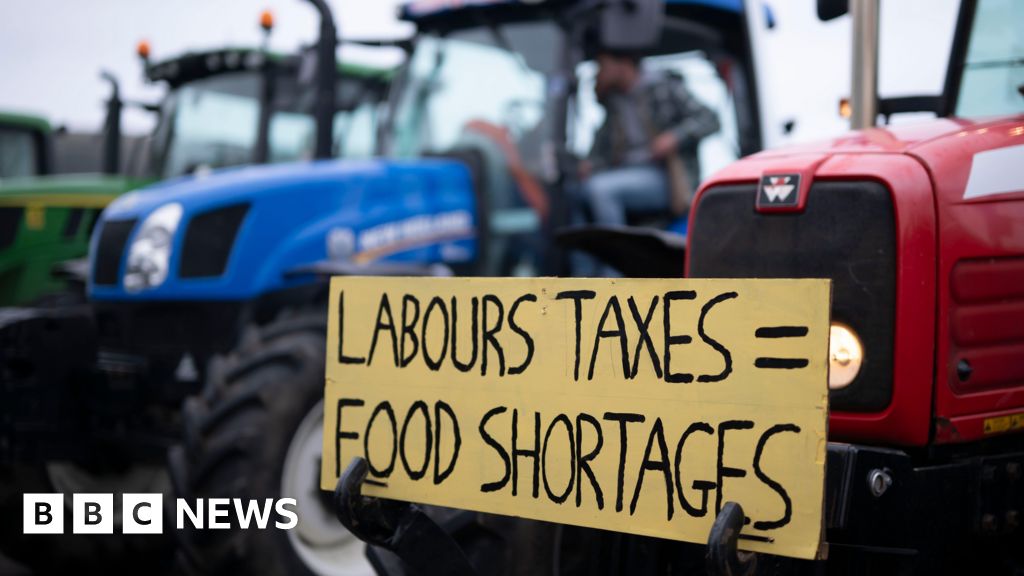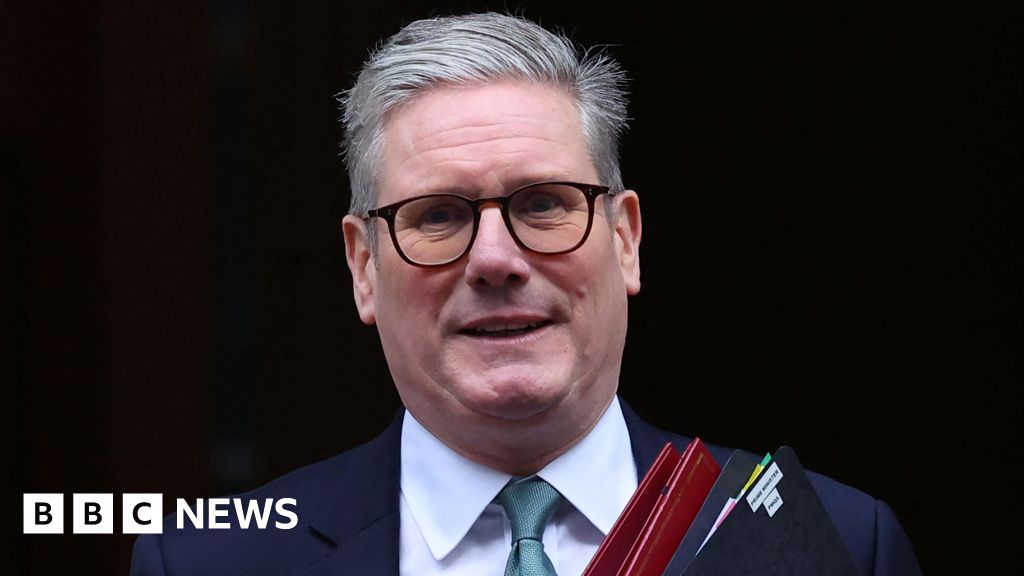ARTICLE AD BOX
Betty Boothroyd's pitch to become the first woman Speaker in 1992
Betty Boothroyd was once described as being like a "headmistress, nanny and pub landlady" all rolled into one.
She fiercely defended the traditions of Parliament and was visibly impatient with backbenchers who failed to behave in a proper manner, or with any minister whom she felt was attempting to bypass the House.
And she was not a moderniser, having little truck with the notion of family-friendly hours in the Commons.
Her down-to-earth manner, complete lack of pretension and her respect for the supremacy of Parliament endeared her to members on both sides of the House.
Betty Boothroyd was born on 8 October 1929 in Dewsbury, West Yorkshire, the only daughter of mill workers.
Her father was a committed trade unionist and she later remarked that she "came out of the womb into the Labour movement".
Her upbringing, in a loving home, not only imbued her with her work ethic, but taught her that despite her relatively humble background, she could be as good as anyone else.
As the first woman to be Speaker, she administered firm discipline with a dash of good humour
She never lost her common touch and her insistence in "taking people as I find them" was a major contribution to her later popularity as Speaker.
Tiller Girl
Her early dreams were of the stage rather than politics, and with her natural exuberance and love of the limelight, she hankered after a career as a dancer.
While her father had always encouraged her to make the best of herself, he did not feel the stage was the place for a good, working-class girl. But against his wishes, she moved to London to pursue her career.
She joined the Tiller Girl dance troupe, but after a short stint quit show business to return to Dewsbury. Her father died shortly afterwards.
Image source, Getty Images
Image caption,Betty Boothroyd photographed in the 1950s
Like many of her school friends, she might have found herself in a mundane office job but was rescued during a week away at Butlin's with members of the Labour Party League for Youth.
Not only did her passionate speaking get her photograph into a national newspaper but she also - in those more sexist times - won the beauty contest.
In 1952, she secured a job working for two Labour MPs, Geoffrey de Freitas and a rising star named Barbara Castle.
It was a measure of her diplomacy that she managed to work simultaneously for such diverse politicians; de Freitas, an amiable more moderate MP, and Castle, the fiery darling of the Labour left.
Entering Parliament
But the road to a parliamentary seat was to prove a long one. She failed to win Leicester South East in a 1957 by-election and, two years later, was unsuccessful in Peterborough in the general election.
After a brief period in the US, working for the campaign to elect John F Kennedy, she returned to England and began working for a millionaire farmer named Harry Walston.
Walston was a committed socialist who lived in splendour in a mock Georgian mansion in Cambridgeshire.
Image source, Getty Images
Image caption,It took Betty Boothroyd five attempts to win a seat in Parliament
He harboured parliamentary ambitions which were never realised but eventually he was made a life peer and delighted in entertaining leading society figures, as well as the movers and shakers in the Labour Party.
It was a world away from the streets of Dewsbury but Boothroyd, by all accounts, settled in well and became part of the family.
Walston's son Oliver later said that his father's relationship with Betty Boothroyd was very close but, in no sense could it have been called intimate. Indeed, she sued newspapers who suggested otherwise.
In fact, Boothroyd remained single throughout her life, admitting to having had boyfriends, and three proposals, but declaring that she was too busy to enter into any long-term commitment.
In May 1973, and at the fifth attempt, she finally entered Parliament after winning a by-election in the safe Labour seat of West Bromwich.
"I had become the girl least likely to succeed," she later recalled. "If I had lost West Bromwich, I would have slit my throat."
She was appointed an assistant whip in the incoming Labour government of 1974 and also served on the party's National Executive.
She became a deputy Speaker in 1987, the second woman to hold that position after the Conservative MP Betty Harvie Anderson who had been deputy in the early 70s.
Image source, Getty Images
Image caption,Receiving the Order of Merit from the Queen in 2005
First female Speaker
In 1992, she defeated the Conservative government's candidate in the election for Speaker - the first woman to hold the historic post.
With the traditional show of reluctance, she was dragged to the chair by Conservative John Biffen and her Labour colleague Gwyneth Dunwoody.
Her theatrical training stood her in good stead. She enjoyed stage-managing debates and revelled in her role of making Parliament the focus of attention.
Image source, Getty Images
Image caption,A champion of individual liberty, Lady Boothroyd enjoyed lighting up on National No Smoking day in 2007
The first time she presided over Prime Minister's Questions, she astonished MPs by bringing it to a close with the now immortal words: "Right, time's up."
Despite her decision not to wear a wig, "far too heavy and imperious", she was a stout defender of Parliamentary tradition, something which led to some friction with the incoming Blair government in 1997.
She deplored the New Labour culture of spin and what she saw as a growing tendency for ministers to bypass the House and leak statements to the media.
She made it clear she felt MPs had a duty to give such time to the House as was needed to carry out the business of Parliament and, if that meant long hours, so be it.
In July 2000, Betty Boothroyd stunned the Commons by announcing she was stepping down from the Speaker's chair. "Be happy for me," she told MPs.
In her farewell speech, she made it clear that much needed to be done to restore confidence in the ability of the Commons to hold the government to account.
"The level of cynicism about Parliament, and the accompanying alienation of many of the young from the democratic process, is troubling. It is an issue on which every member of the House should wish to reflect."
A quiet retirement was not on the agenda. Made a life peer in 2001, she launched herself into a campaign for a statue in Whitehall to commemorate the part women played in World War Two.
Image source, Getty Images
Image caption,Lady Boothroyd campaigning against Brexit in 2019
She raised £800,000 towards it herself - by appearing on the TV quiz show Who Wants To Be A Millionaire - and attended the unveiling of the completed statue in 2005.
She also remained a champion of the liberty of the individual, defiantly lighting up a cigarette on national No Smoking day in 2007.
As she entered her 90s, Betty Boothroyd remained a formidable political force.
An ardent opponent of Brexit, she condemned Boris Johnson from the benches of the House of Lords, when the prime minister threatened to break international law in a row with the European Union in 2020.
"Never in my parliamentary experience have I witnessed such a collapse of the people's trust in a government that promised so much and so quickly," she said.
Thanks to Parliament being televised, the only woman ever to be Speaker became the office's most well-known incumbent.
Once asked how she would like to be remembered she replied in typical down-to-earth fashion:
"As an honest and fair Speaker," she said.
Related Internet Links
The BBC is not responsible for the content of external sites.

 1 year ago
13
1 year ago
13








 English (US)
English (US)